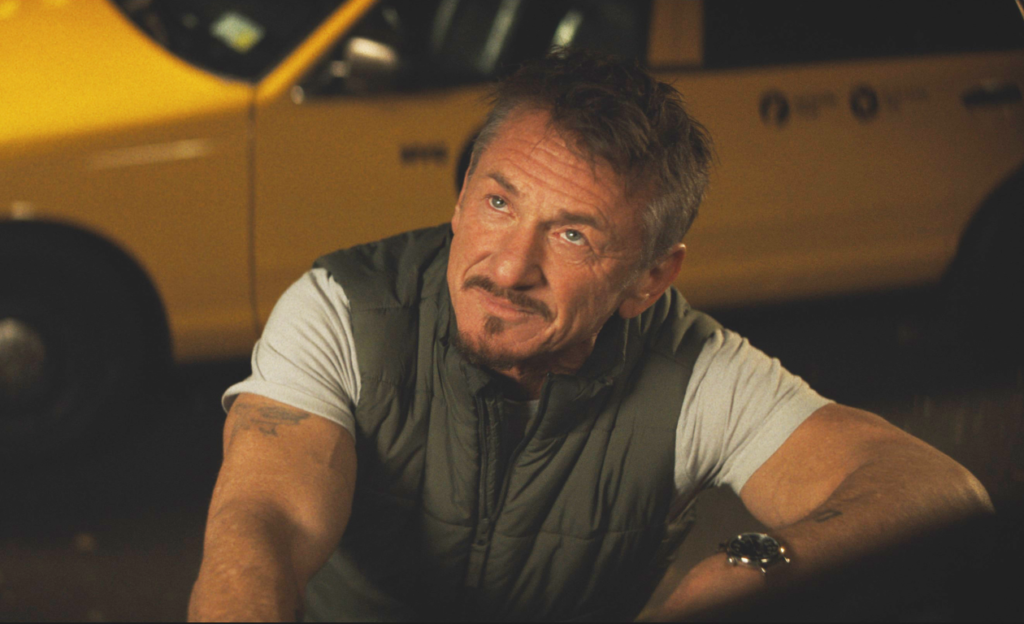Read also:
How to Watch FX Live Without CableHow To Watch AMC Without CableHow to Watch ABC Without CableHow to Watch Paramount Network Without CableFrom Certified Copy to Mass to the Before trilogy, cinema is replete with examples of great movies that wring transfixing drama out of an intimate scope and a cast of characters you can count on one hand. Christy Hall’s feature-length directorial debut Daddio aims to follow in the footsteps of those features, but stumbles mightily in the process.
Daddio begins at a New York airport, where Girlie (Dakota Johnson) plops into a taxi after a trip to her home state of Oklahoma. Driving this cab is Clark (Sean Penn), a grizzled man in his sixties who loves shooting his mouth off. Initially, the focus of his ramblings is typical old-man material. He gripes about the ubiquity of apps and credit cards in the modern world. Gradually, though, the duo gets trapped in traffic. Stuck on the road, Clark begins asking Girlie increasingly intimate questions. They started this car ride as strangers. But conversations ranging from the raw to the ribald will have Girlie discovering the listener she didn’t know she needed.
Unsurprisingly, Daddio started as a concept for a stage play. What’s surprising is how the final film’s visual impulses seem determined to avoid comparisons to something you could watch on Broadway. Hall, cinematographer Phedon Papamichael, and editor Lisa Zeno Churgin act furiously to avoid lengthy single-take shots. Nobody will ever compare this to a Chantal Akerman or Chung Mong-Hong movie. Instead, images default to close-ups and medium shots. Hall and company continuously jostle viewers around the cab. Maybe this is out of concern that moviegoers will see a more staid visual style and immediately ask, “Why isn’t this a play?”
This potential mindset to Daddio’s brief montages removes us from Girlie and Clark’s confines. Second-unit footage of a taxicab moving across New York at night fills the screen. These cutaways aren’t just generic; they immediately release us from identifying with our protagonists. Communication bonds forming during confinement with these exterior wide shots is impossible. We can escape this taxi. Girlie and Clark cannot. Daddio‘s cinematography is removed from the lead character’s physical restrictions. Inevitably, this visual style puts as at a remove from what’s happening on-screen.

Even if Hall had kept the camera inside that fateful taxicab, Daddio wouldn’t have suddenly become as enthralling as other intimate dramas with small casts like The Father. Hall’s dialogue, put simply, just isn’t that compelling. These characters talk in very obvious metaphors about “capes” or “scuba diving.” They’re speaking in self-help talk from the very start of the car ride. There’s no jagged sense of reality to their verbiage. She also defaults to didactic dialogue to communicate internal feelings that would register more vividly if conveyed visually. A devastating car wreck, for instance, can’t pass by Clark without him observing, “That ain’t no fender bender!” A mournful look from the guy would suffice.
Girlie’s remark to Clark, “You’ve said very little in a long time,” might as well be Hall lampshading her screenplay’s shortcomings. Penn, a performer ill-suited to these intimate confines, delivers the lion’s share of this disappointing dialogue. A movie like Certified Copy, Mass, or Medicine for Melancholy requires actors who are well-versed in the subdued and realistic. Going big and broad will get tiresome fast when all you’ve got to focus on is two people.
Penn has made a career out of big, showy performances, from his bellowing work in Mystic River to his outsized turn anchoring Flag Day. That type of acting is perfect for certain movies. Daddio is not one such movie. Constantly chewing gum while talking in a thick “New York” accent, Penn never turns Clark into a real human being. He’s a caricature of a Big Apple taxi driver, not somebody a woman would gradually open up to emotionally.

Penn is also the worst person to deliver Hall’s “non-PC” dialogue for this experienced old man. Clark’s big “Men are from Mars, women are from Venus” monologue, for example, would be tired in any context. But Penn’s lecherous espousing of this man’s symposium on gender is especially repellant. Clark doesn’t come off as the erratic but thoughtful soul Daddio wants him to be. Penn solidifies him instead as a tiresome collection of tics and “transgressive” lines.
Playing opposite Sean Penn rambling about boners or used panties from Japanese vending machines are hints of greatness in Dakota Johnson’s performance. This actor is left a bit adrift under Hall’s direction, which seems more enamored with Penn’s “profound eccentricities.” However, her most realistic human moments solidify why Johnson is a notable modern leading lady. Towards the end of the runtime, this performance yields a scene where tears bubble in Girlie’s eyes while recalling a story about saying goodbye to her father. This yarn is told with a smile, reflecting the complex emotions the past stirs in her heart. This realistically paradoxical processing of yesteryear demonstrates more emotional complexity than everything else in Daddio combined.
It’s a welcome sight to see Johnson flexing her chops again after leaving the world of murdered moms in the Amazon behind. Unfortunately, the rest of Daddio is a bumpy ride, thanks to all the interesting thematic and visual possibilities left on the side of the road. Stay home and watch Certified Copy or Mass instead. Those and countless other movies deliver such masterfully restrained cinema that there’s no need to hail this one down.
Daddio is currently playing in theaters.